On-Demand Tutoring Platform for India
Product design / Strategy / Entrepreneurship / Marketing design / Education
Edvice is an on-demand tutoring platform for Indian students. It was later acquired by HashLearn, an Ed-Tech organization led by veteran entrepreneurs.
EDVICE (NOW CALLED HASHLEARN), Bangalore
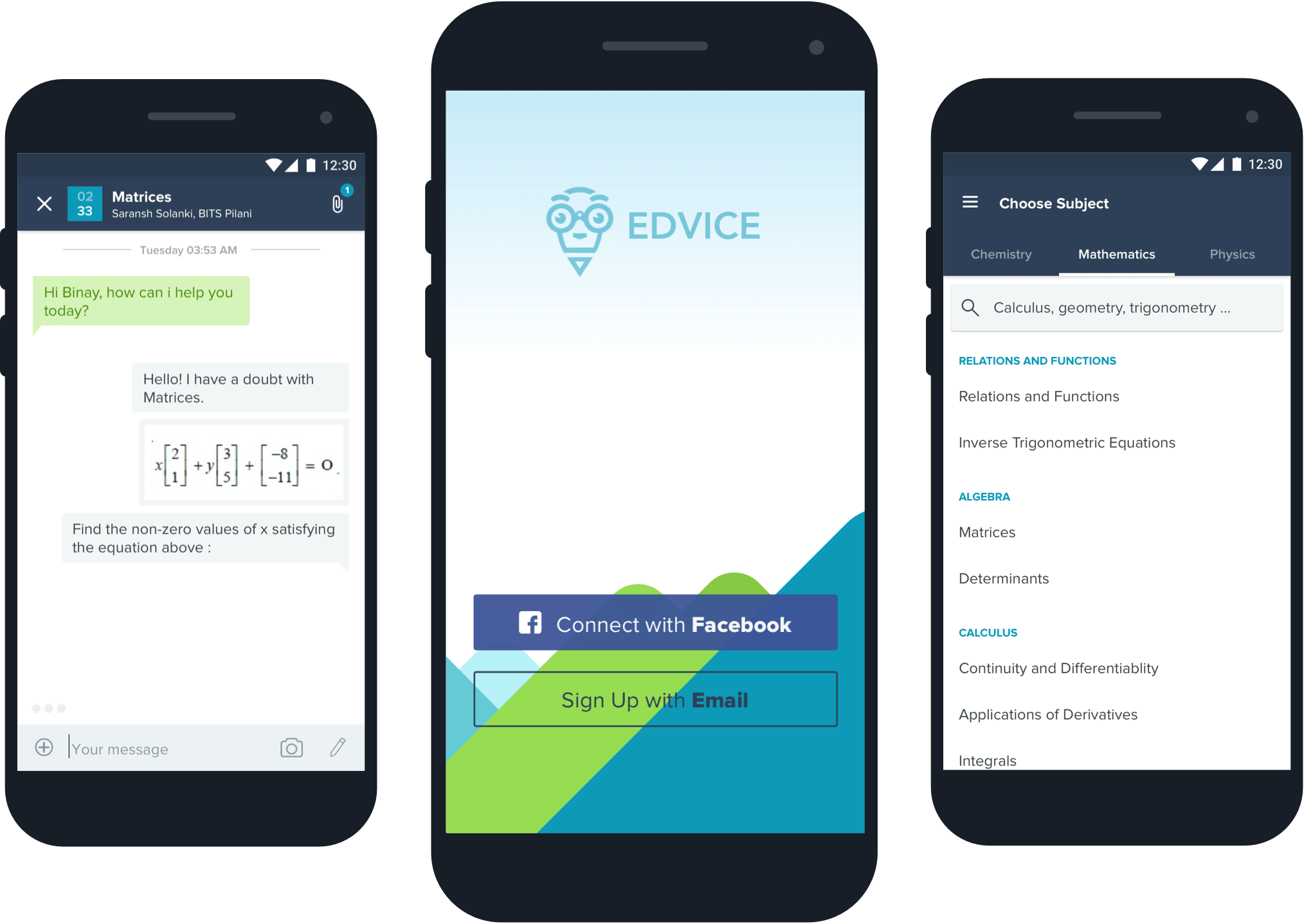
About Edvice
Edvice was a dorm-room startup out of Pilani, a small town in India. It started of as an on-demand tutoring platform as Edulyft in 2014 that was rechristened as Edvice and is currently being used by 500 thousand+ students post its acquisition by Hashlearn.
In this project, I talk about some of the design and product decisions I took while building Edvice.
Team & role
- Timeline and duration: September 2014 - May 2015
- I was one of the three co-founders who started the platform named Edulyft which was later rechristened as Edvice. We later had a team of 10.
- Apart from building and designing the product, I spearheaded the marketing and hiring verticals and eventually led the company to a successful exit with the acquisition by HashLearn, an Ed-Tech organization led by veteran entrepreneurs.
What got us started?
We noticed a genuine problem which one of our co-founder’s brother and my younger sibling were struggling with, and we realized that we had struggled with it too. We remember how, no matter how much we studied, after a point, our scores for our aspired entrance exam always plateaued. Moreover, when our siblings complained about the same thing, four years later, we wondered about the problem.
This was our eureka moment.
Problems amongst students
We focused our audience to high school students preparing for various competitive examinations in India (IIT-JEE, BITSAT, NEET/AIPMT, etc). Some of these tests are considered to be the toughest in the entire world.
Since we were based out of Pilani (a small town in Rajasthan where we did our undergraduate studies), we focused on the top-tier cities with internet penetration around Pilani (Jaipur, New Delhi, Agra). Later on, we started acquiring users from Bangalore and other cities in the south.
Identified problems
On in-depth analysis of the problem through talking to many students and parents, we recognized a pattern. Lack of personal teacher guidance led to lack of confidence amongst students. The students had no idea whatsoever on what topics they were weak in and how to improve. They do not have teachers to contact to and hence feel helpless.
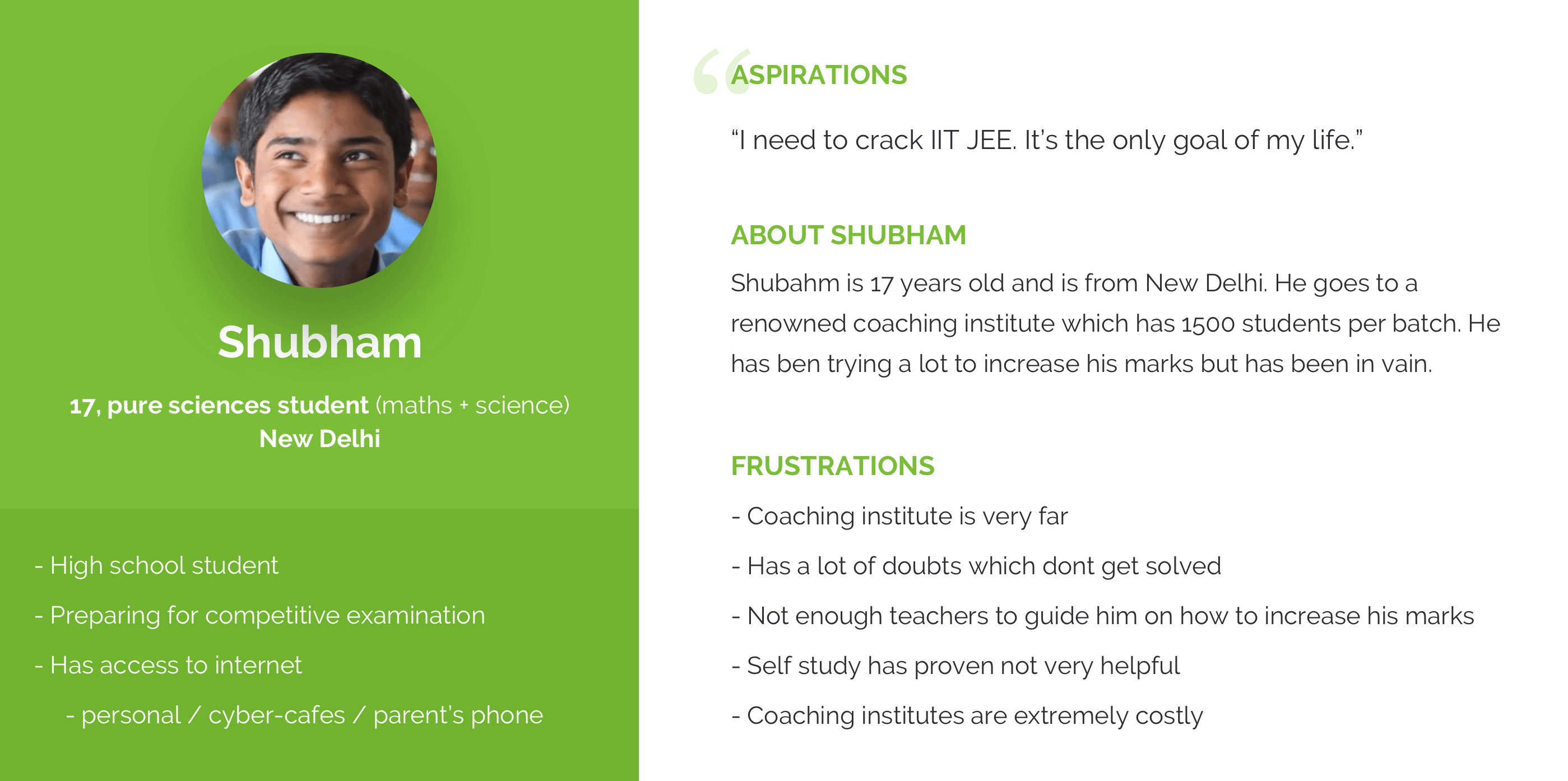
Persona of students we were trying to solve for
- Conventional coaching institutes do not give the personal attention which students need
- The best and most renowned coaching institutes have a student to teacher ratio of 100:1
- Many teachers are subject generalists, not topic specialists
- Students spend 6 hours 42 minutes on self-study every day, most of which is spent on solving a doubt on which they are stuck for long. Lack of guidance is a vital problem here.
- They spend 105 minutes per day on traveling to coaching and other institutions
- On average, an engineering-prep course costs around 1.2 lacs per year with not so sure returns.
A video to explain the daily problems of an engineering aspirant
With all these issues, we understood that there is a genuine necessity of an always-available tutor/companion to help students out.
Initial solution
Motivated by this problem, I along with a bunch of friends decided to build a SaaS solution (Edulyft)< for test prep institutions. We envisioned a future where kids would get an instant rigorous analysis of their shortcomings in tests and a data-driven approach to fixing those loopholes instantly. Some of the key offerings in the product were:
- Chapter-wise modules for students which are in-sync with the teaching timeline
- Periodical tests based on adaptive learning experience
- Subsequent analysis via our in-house proprietary algorithms
- Peer Comparison via EduLyft Network Rank
- Remedial solutions and suggestions based on analysis
This was a B2B2C model which was sold as packages to coaching institutes on per student basis. We were able to get a few clients in Delhi, Jaipur and other cities nearby to Pilani.
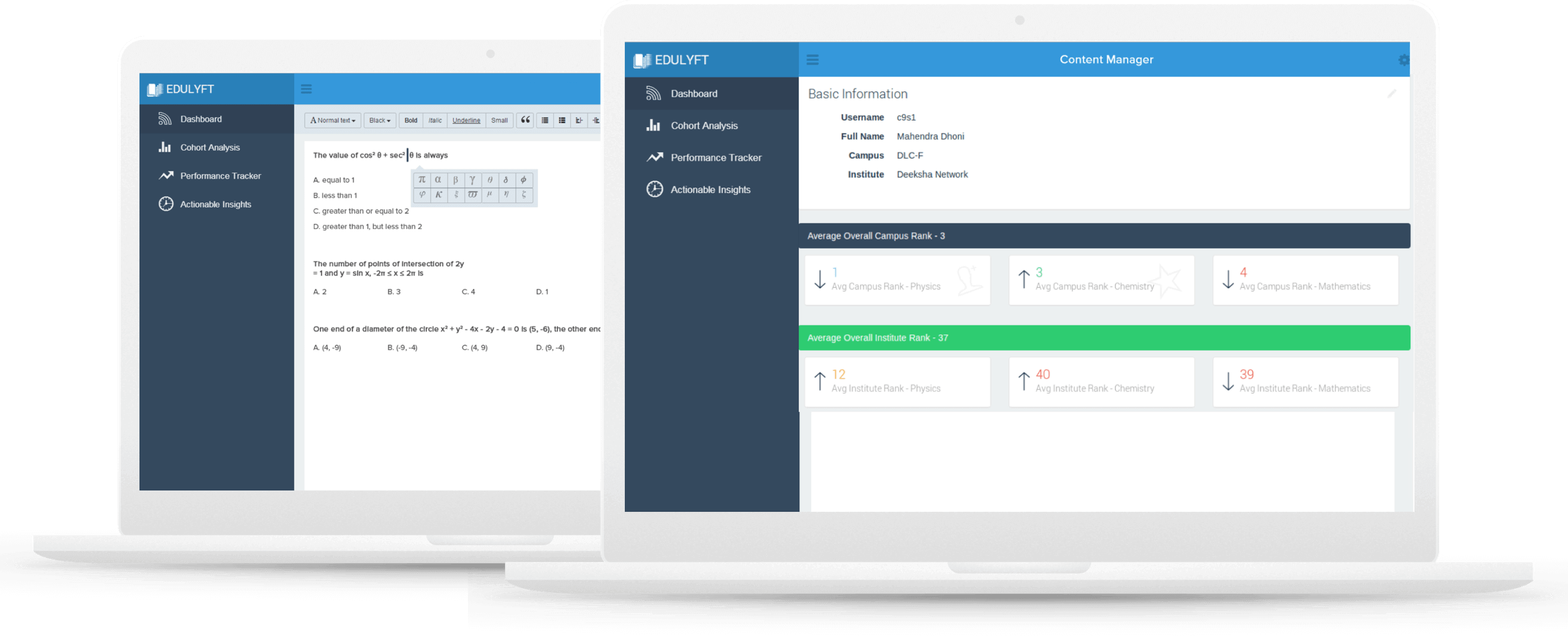
Some screens from Edulyft's platform
Pivot
Edulyft did not scale up as expected. Most coaching institutions thought that the product did not fit their business goals. Their definition of personal attention meant personally counseling a few select toppers and ensuring their quota of a few top ranks in these examinations were fulfilled. This helped them get more repeat students the following year. People shut their doors in our face, hung up or did not even return our calls.
We got pragmatic and pivoted to a consumer-centric app called Edvice through which a student could get connected instantly to a tutor & clear his doubts. We wanted to crowdsource tutorship.
Building Edvice
Why Edvice?
Since the B2B solution had its own blockers, we started ideating on a B2C solution. A platform where we crowdsourced tutoring. There are thousands of students who pass these entrance examinations every year. We planned on using them as our tutor base to help out the next aspirants for such examinations. After speaking to a lot of engineering students and aspirants we realized that this could work if we built an extremely seamless way for them to communicate.
We hired tutors from BITS and IITS which helped solved several doubts of students 24x7 via a chat-based-platform.
App architecture and userflow
We created a nested doll pattern which leads to linear user flows. Since the main activity on the entire app was the flow to book a tutor and chat with them, we used created that as our home page. A side navigation was provided was other linear flows.

Information architecture for the Edvice mobile app
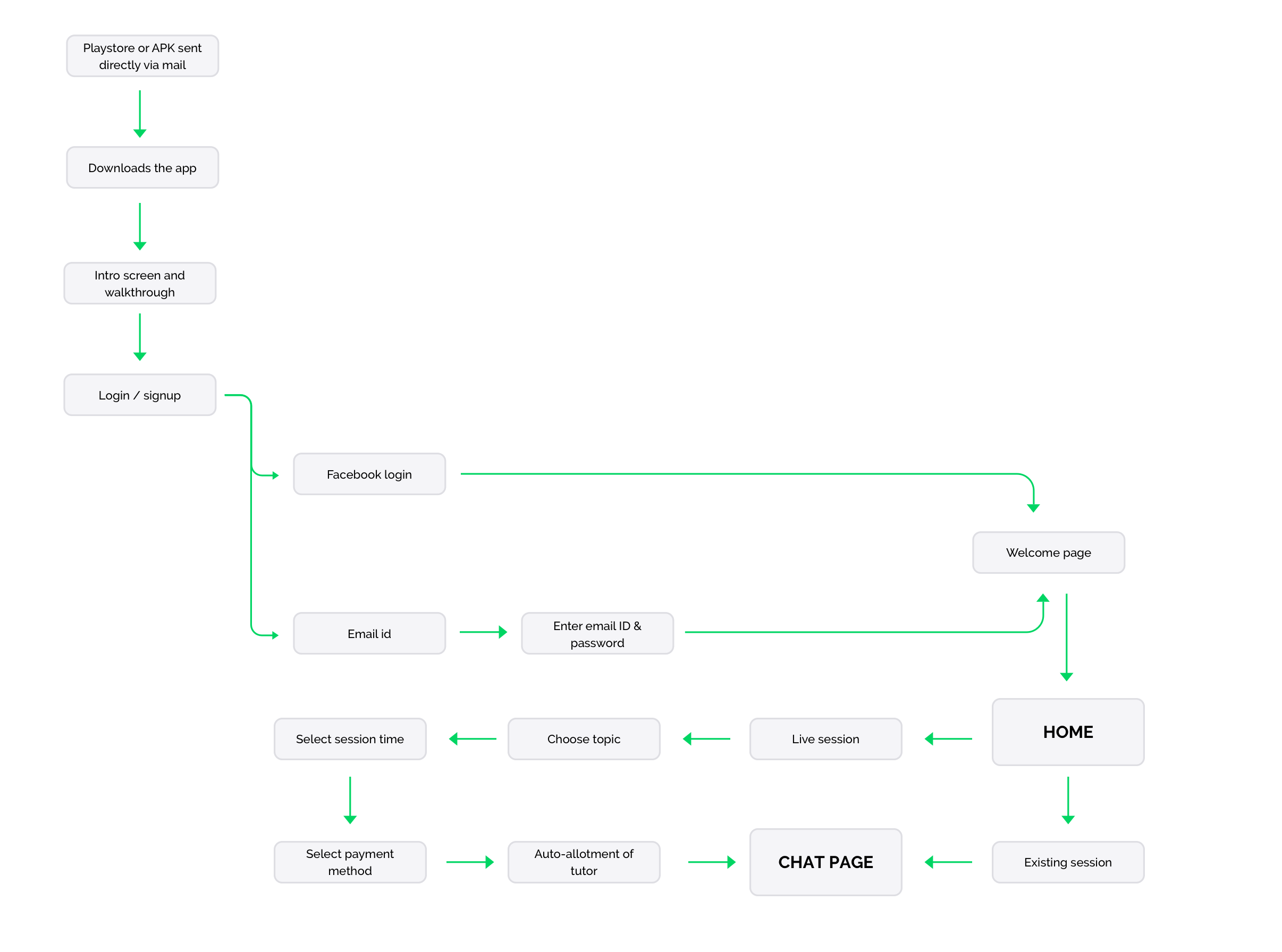
Userflow to book a tutor and get chat with them
Wireframes
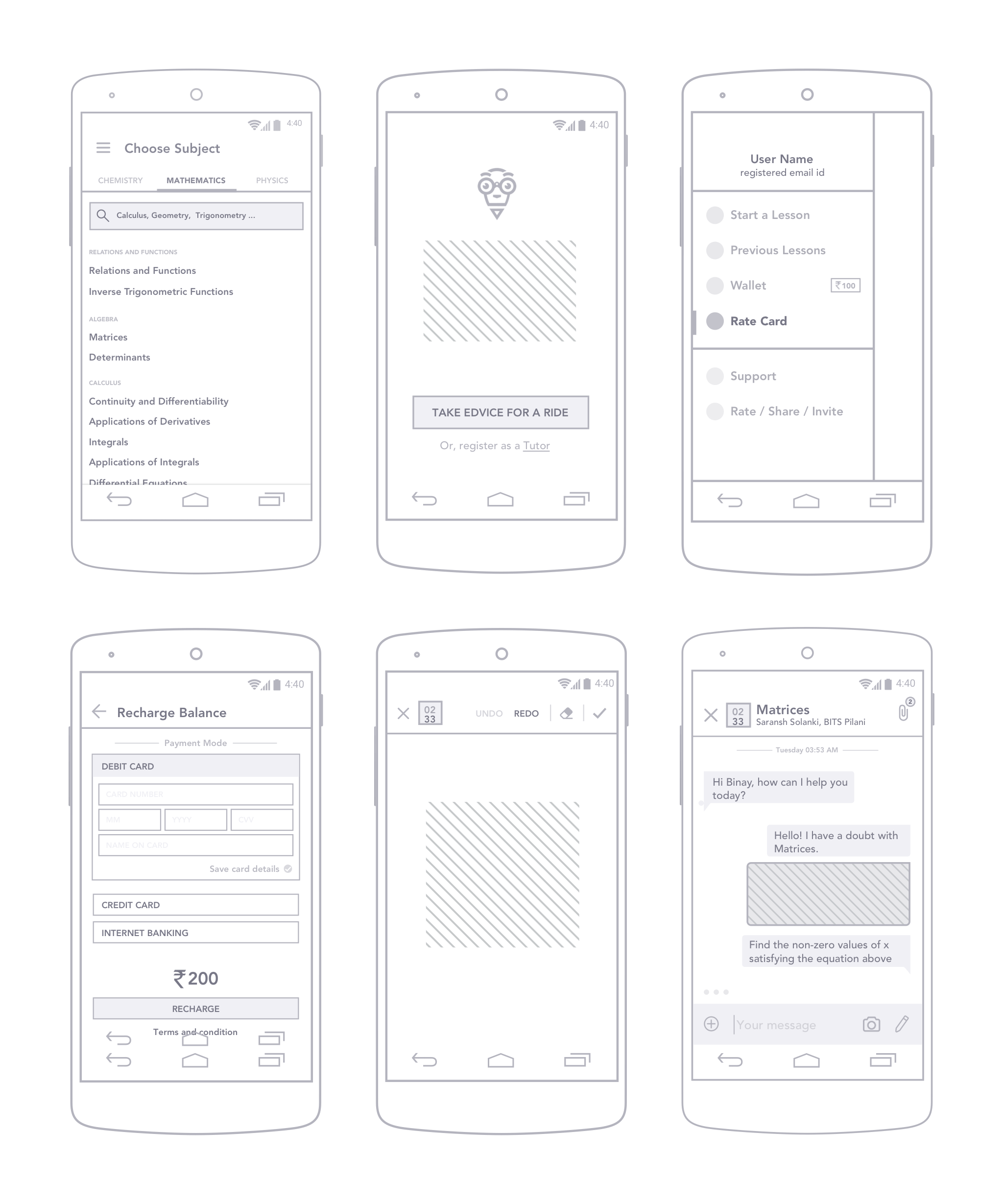
Initial wireframes for the inner screens of the app
Edvice infographic
Initially, we targeted students with a smart-phone but very soon we realised that our prime users actually were parents who provided the app to their children whenever they felt a need. Hence a lot of our marketing and user acquisition strategies were built to get the attention of parents.
As one of our user-acquisition strategies, we created an interactive infographic showcasing the troubles on an engineering aspirant in India. This was viewed by 10k parents and students in a day.
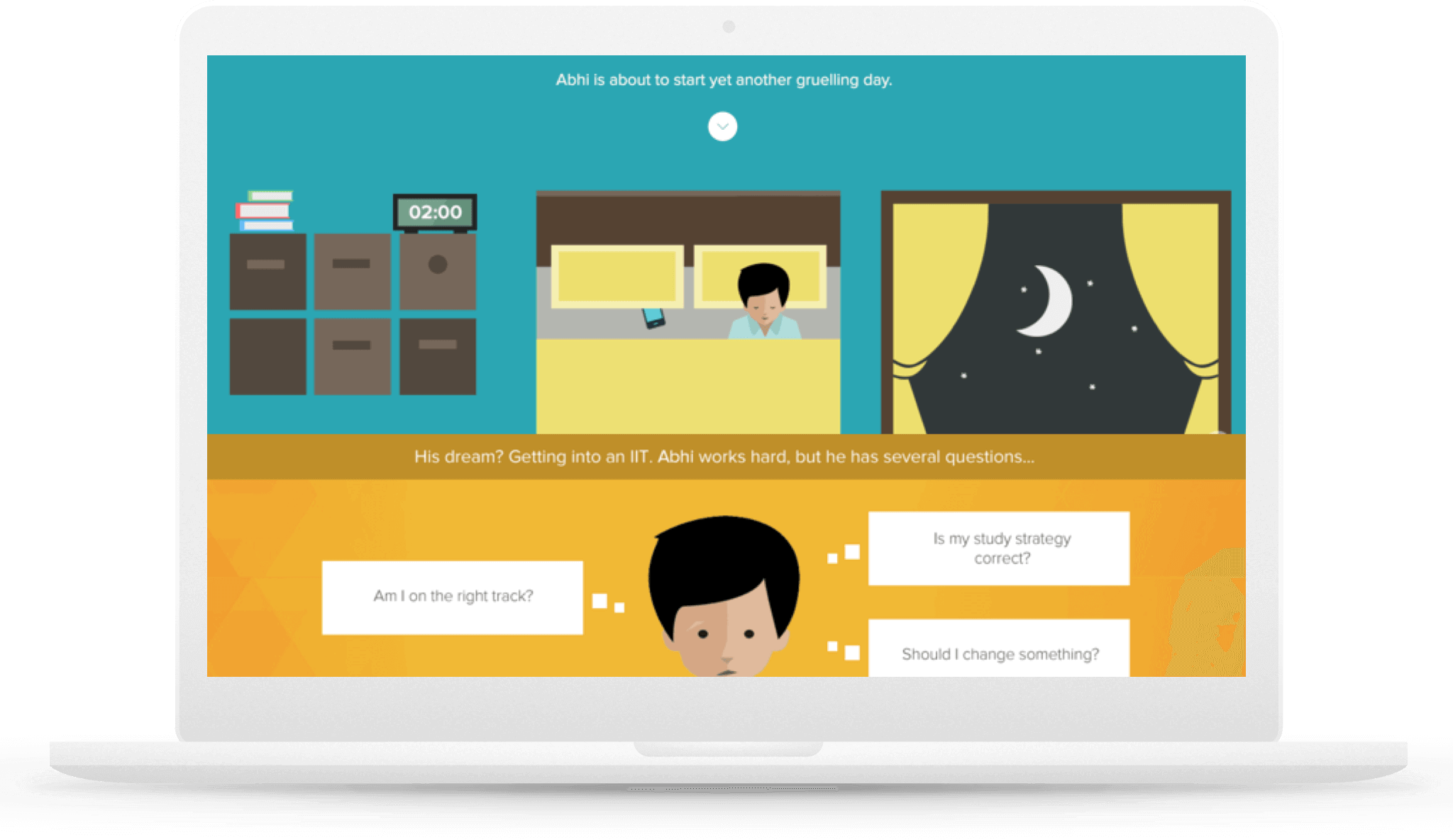
Snippet of the marketing infographic made
The released MVP
We launched the first version of Edvice in early Feb 2015. We went through a lot of brainstorming and tried to create an MVP to test out a lot of our assumptions.
We raised our seed investment round during this phase and with the help of our mentors took the product to a successful exit.
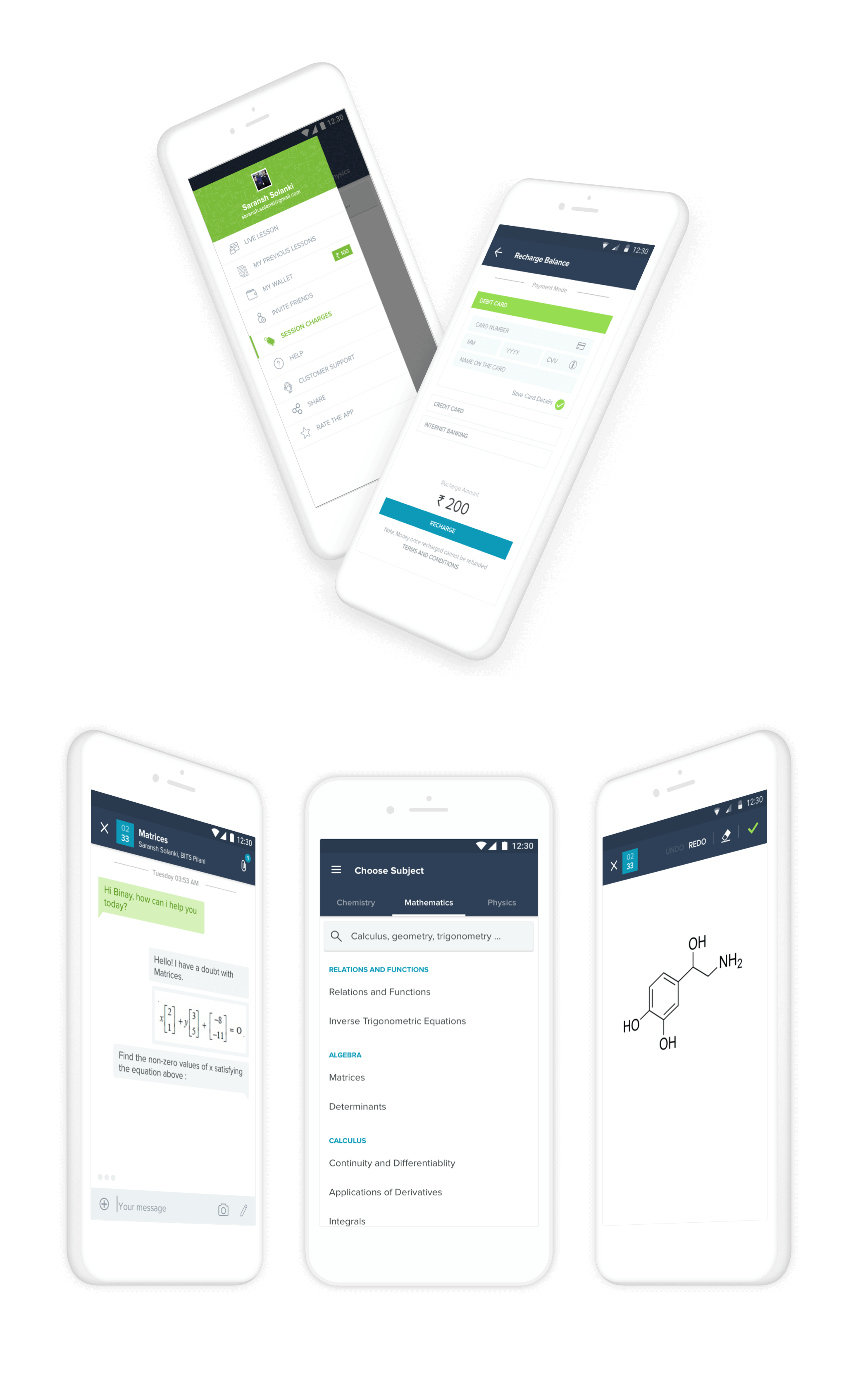
Outcome
While a shift from B2B to B2C brought its own challenges, we survived, continued to fight and achieved a successful exit through an acquisition to Hashlearn in June 2015. We were one of the very few to achieve a successful exit while in undergrad college.
People shut their doors in our face, hung up or did not even return our calls. With literally no money and boiled eggs for dinner, we continued to fight for the product to shape. The average age of the team at the time was 21 years old and we were all still undergraduate students at BITS Pilani.
We launched Edvice in early Feb 2015 and got acquired by Hashlearn in June 2015. The team continued to be a part of HashLearn, rebranded Edvice to HashLearn Now and today it is loved by 500,000+ tutors & students who use it on a daily basis.
You can read more about our featured story here.